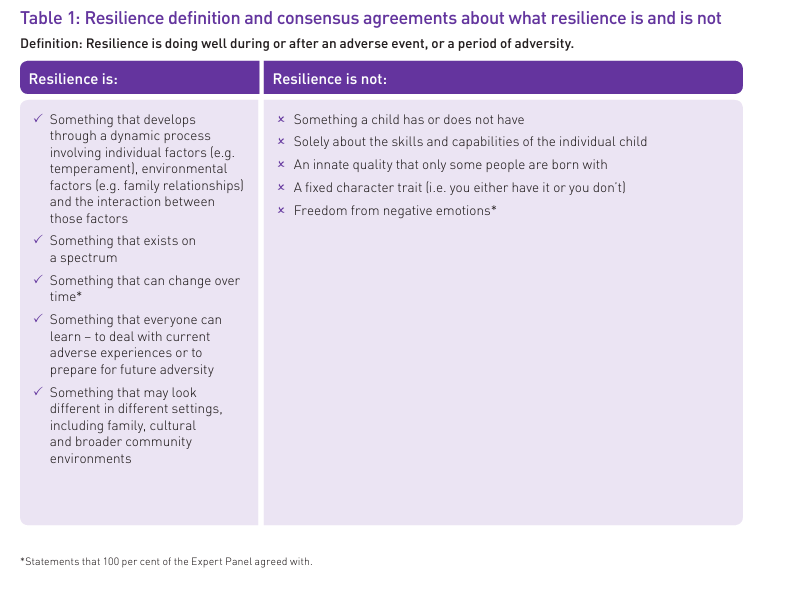Improving children’s resilience helps them to deal with the adversities they experience during childhood. It provides a foundation for developing skills and habits (e.g. coping skills, healthy thinking habits) that enable them to deal with later adversities during adolescence and adulthood. Resilience is also important for children’s mental health. Children with greater levels of resilience are better able to manage stress, which is a common response to difficult events or adversities.
Stress is a risk factor for mental health conditions if the level of stress is severe and/or ongoing. Interventions that build resilience are important for all children (i.e. universal interventions), including those at risk of poorer outcomes as a result of socio-economic and other forms of disadvantage (i.e. targeted interventions).
Universal and targeted approaches to building resilience have potential social and economic benefits to society, including better mental health outcomes for children and savings in mental health treatment costs. Importantly, removing adversity is always preferable to building resilience. However, adversity is not always avoidable. It is not always possible to prevent natural disasters, parent separation and deaths in families, for example. We can however, build children’s resilience so that they can better manage life’s adversities when they occur.


To learn more about resilience and how you can deepen your understanding of your child’s resilience. Click HERE and read Beyond Blue – Building Resilience in children aged 0-12.
Beyond Blue Ltd. (2017). Building resilience in children aged 0–12: A practice guide
